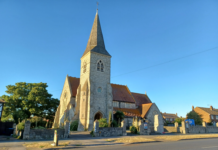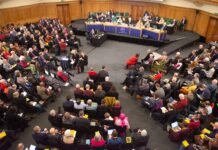As most of you are aware, the South Carolina Supreme Court released its final ruling in our case on April 20 this year. Shortly thereafter, eight of our congregations filed a petition for rehearing, each providing additional legal considerations for the court suggesting the standard adopted by the Court did not, in fact, create a trust interest in their property. Of those eight, there are still seven petitions being given active consideration by the Court.
Last week, legal counsel for the Episcopal Church (TEC) filed their Court directed return, detailing their legal arguments for why the remaining petitions should not be granted. Monday, legal counsel for the parishes in our Diocese filed their reply, providing counter arguments to those in the TEC return last week. Those filings can be found HERE and HERE.
To simplify somewhat, the ruling of the Court is that if a congregation acceded to the constitution and canons of TEC after 1979, it created a trust interest in the property in favor of TEC and its local Diocese. The arguments of the petitioning parishes, supported by yesterday’s reply, addresses two essential issues. Based on the Court’s holdings in April, to create a trust requires present action and present intent. Because the parishes of Holy Comforter, St. Jude’s, St. Luke’s and Trinity Church added their accession clauses long before the adoption of the Dennis Canon in 1979, those actions should not represent present action or intent to create a trust.
The other issue identified for Good Shepherd, Holy Cross and Old St. Andrew’s is that the documents referenced by the Court that created the alleged trust were adopted after January 2006. By state statute 62-7-602(a), trusts created after this date are revocable, unless there is clearly expressed intent at that time they should not be. Arguments provided in the petitions and Monday’s reply demonstrate there was no such intent at the time and these parishes clearly acted with intent to revoke any such interest.
Based on these arguments, it is our hope that these remaining seven parishes will be judged by the Court to have retained unencumbered ownership of their property. The outcome is now fully in the hands of the South Carolina Supreme Court. Please keep the Court, its Justices and staff in your prayers, that justice might be done, and swiftly.




[…] Supply hyperlink […]